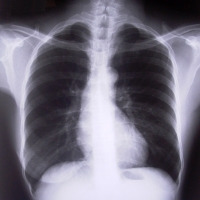Is the FDA Ready to Regulate Mobile Medical Apps?

With the growing adoption of mobile technologies for health care delivery, the U.S. Food and Drug Administration (FDA) has proposed regulating mobile medical applications.
Fast forward to 2013—final guidance has not yet been delivered. The delay has left many in the mobile health arena to speculate on exactly what will be regulated and how encompassing those regulations will be when they finally arrive.
For example, will smartphones, tablets, and mobile apps be affected by the 2.3 percent medical device tax included in the president’s health care law? With Congress and industry seeking clarification, last week the House of Representatives Subcommittee on Oversight and Investigations held three days of hearings on the FDA’s regulation of mobile medical apps; some information emerged.
What won’t be regulated?
Christy Foreman, director of the Office of Device Evaluation in the FDA’s Center for Devices and Radiological Health, provided some clarity when she testified that consumers’ smartphones or tablets will not be taxed. In another release, Foreman states:
Just as importantly as what our policy proposes is what our policy does not propose. It would not regulate the sale or general consumer use of smartphones or tablets. It would not consider entities that exclusively distribute mobile medical apps, such as the 'iTunes App store' or the 'Android market,' to be medical device manufacturers. It would not consider mobile platform manufacturers to be medical device manufacturers just because their mobile platform could be used to run a mobile medical app regulated by FDA. It would not require mobile medical app developers to seek Agency re-evaluation for minor, iterative product changes. And, it would not apply to mobile apps that perform the functionality of an electronic health record (EHR) system or personal health record system.
What will be regulated?
According to Foreman, the FDA’s oversight “will be the small subset of mobile apps, referred to as mobile medical apps that meet the definition of ‘device.’...medical ultrasounds and electrocardiogram (EKG) machines are medical devices subject to FDA review whether or not they are on a mobile platform.”
Foreman provided other examples: “Mobile apps that affect the programming of a drug infusion pump or computed tomography (CT) scanner could lead to a drug or radiation overdose. An inaccurate or malfunctioning mobile medical app that uses a sensor to diagnose skin cancer or to measure critically low blood oxygen levels in chronic lung disease patients could delay lifesaving diagnosis and treatment.”
When will the FDA release final guidance on mobile medical apps?
In the Mobile Health News article “Five things we learned from the FDA’s medical app testimony,” Brian Dolan includes the exchange between Foreman and Rep. Michael Burgess, in which Foreman stated that the FDA plans to release the final guidance by the end of the fiscal year—October 2013.
Hopefully.

